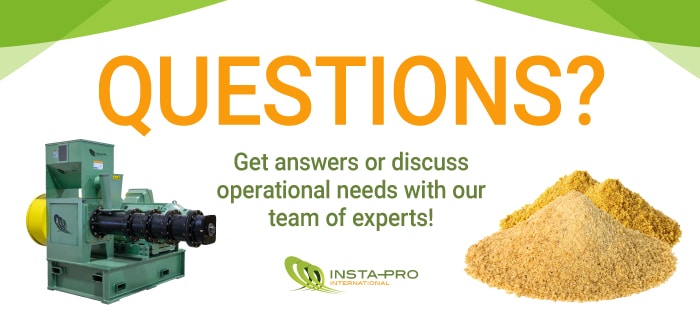Statistical Process Control (SPC): Quality Tools for Your Plant

An area sometimes overlooked within a plant is quality control. Quality control does not have to be limited to visual appearance only, though. It is easy to associate it with the quality of the incoming ingredients, but quality control can be applied to processing as well.
What is SPC?
Statistical process control (or SPC) is a method of understanding how well a process is performing within a set of criteria. In other words, it gives you an idea of how well your plant is running. By understanding certain limits, one can optimize production and quickly react to changes in a process.
Methods
One of the simplest approaches is to record something on a regular basis and then track it over time. To start, you need to decide what to monitor and then establish a baseline reading. Is it water percentage? Density? Pellet size? Whatever it may be, you cannot do anything without first knowing where you are. Only sustained production and accurate readings will allow you to do this.
Next, you will need to decide what a “good” range is (called “control limits”) for your process. You will also need to decide how to react when the process goes outside of this range (more/less water, slow down feeding, etc.). Care must be taken when selecting a processing range. If your range is too narrow, you will spend most of your time correcting a process (even though you may be making good product). On the other hand, if your range is too wide, you may be allowing bad product through to the customer. Market analysis and discussions with your customers will help to determine this.
As an example in full fat soybean extrusion, you may want to look into protein, fat, and moisture content as well as urease levels pre- and post-extrusion. Moisture percentage (too high or low) can have a great effect on extrusion stability and end product quality and can be a simple check if your process does not seem stable. If your percentage varies, you would now have data to present to your supplier in order to remedy this issue. Urease levels will indicate proper or improper cooking in the extruder and can tell you if you need to be processing at higher temperatures. This will also ensure feed is at acceptable quality before being consumed by animals and causing potential issues.
Other Quality Tools
In addition to control limit monitoring, tools such as capability analysis (long/short term), plot distribution, and histograms can be used to analyze and share data. These more advanced tools will allow you to predict future process performance and how well your process is set up. A simple Wikipedia search will shed more light on these items and their usefulness for your process.
The goal within any operation is to be profitable. If you understand your process, you can better react to changes which many incur cost over time. Process monitoring and SPC is an investment in your plant and is one that can save you money in the long run.





